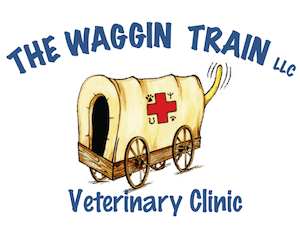Which Is The Right Food For Your Pet?
 The right diet will supply your pet with the necessary building blocks and energy components that allow them to grow, develop to their potential and stay active throughout their life. With a plethora of dietary options, brands and formulas available, deciding on your pet's diet can be confusing. To help minimize the stress of figuring it out on your own, we offer high quality prescription and non prescription diets. Our trained staff is available to help you choose the right diet for your pet to keep him or her happy, healthy, and active.
The right diet will supply your pet with the necessary building blocks and energy components that allow them to grow, develop to their potential and stay active throughout their life. With a plethora of dietary options, brands and formulas available, deciding on your pet's diet can be confusing. To help minimize the stress of figuring it out on your own, we offer high quality prescription and non prescription diets. Our trained staff is available to help you choose the right diet for your pet to keep him or her happy, healthy, and active.
We also offer nutrition counseling for dogs and cats in areas of obesity, growth, maintenance, reproduction, as well as prescribing special foods to aid in the control of allergies and specific medical conditions.
What is the best way to feed my pet?
Select a food that is specifically balanced to deliver the caloric and nutritional requirements essential for health, happiness and wellness. It is important to make sure to use portion control whether or not you use timed or free choice feeding methods.
- Timed Feeding: Timed feeding involves making a portion food available for a specific period of time. For example, food can be placed in your pet's bowl for 30 minutes. After that time, if he or she has not consumed the food, it is removed. This is a common way to feed puppies of breed types that do not tend to gorge themselves
- Meal Feeding: Meal feeding involves feeding a specific amount twice a day. Unfortunately, most pets will overeat if allowed timed feeding or free-choice feeding. For this reason, we recommend meal feeding most often
- Free-Choice Feeding: Free-choice feeding allows food to be available at all times, as much as your pet wants, and whenever he or she wants it. This method is rarely as good option because most pets will overeat and become overweight
Middle-aged pets have greater risks of gaining excess weight than puppies and kittens. Therefore, choosing a balanced and nutritious adult pet food, and implementing responsible feeding protocols, decreases adverse health effects caused by poor nutrition or over-consumption.
What are the negative effects of overfeeding?
Over time the weight gain your pet will accumulate can lead to diabetes, fatigue, stress on their joints, and trouble breathing. They can also show early signs of arthritis. With all of these negative effects, one of the best things we can do for our pets is to properly manage their diets. As mentioned previously, a good diet will help lead to a happy, healthy life.

